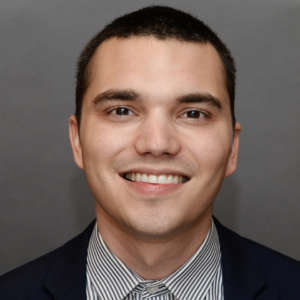In the national and homeland security sectors, there are numerous resources and theory. But when it comes down to actually protecting the country in an ever-changing threat environment, how do professionals prepare for future risks?
That’s part of Monique Chouraeshkenazi’s mission. An instructor at American Military University’s School of Security and Global Studies and founder of the Chouraeshkenazi Group—she is building relevant education for the next generation of homeland and national security professionals.
“I applied the concepts and training I learned on the administrative side of the Air Force,” said Chouraeshkenazi, a veteran following 13 years of military service. “I applied it to my business to provide programs and curriculum for professional military development centers and for universities.”
Chouraeshkenazi is now adding an analysis component to her pedagogy while exploring other disciplines that can potentially bring new insights to the field.
“It’s basically doing advanced research on the scientific notation of terrorism, homeland security and eventually I want to apply psychology to homeland security and terrorism,” Chouraeshkenazi said.
Part of Chouraeshkenazi’s job as an educator and consultant is to continually assess some of the most vulnerable areas of the United States.
Right now, ports and railroads are a serious concern, she said.
“About 2 percent of the imports that come into the United States [through ports] are investigated and examined,” Chouraeshkenazi stated. “It’s due to the manpower, the hours and how long it takes for things to come in from overseas. All those things are factors in what gets inspected.”
Chouraeshkenazi explained ports are considered “soft targets” – including mobile targets such as cargo ships and barges.
“There needs to be legislative action when it comes to port security. Our Coast Guard is responsible for all our waters. If we have to, we need to sacrifice some money to put into it. Congress has a way of finding money when we need to. If you want to protect your waterways and your railroad systems… there’s money I feel like can be appropriated,” Chouraeshkenazi advised.
She added that it’s up to lawmakers and the Department of Homeland Security to find innovative ways to make dollars stretch in order to make ports and railroads more secure.
Ports and railroads aren’t the only issue falling under the radar.
Terrorist groups like Al-Qaeda and the self-described Islamic State may not be in the news as much anymore, but they aren’t entirely diminished.
“Because you don’t hear about them doesn’t mean they don’t exist,” Chouraeshkenazi said. “We still need to be cognizant of what they can do in the future.”
But, while there are always security threats, Chouraeshkenazi said people can find hope in students.
“I’m amazed by the students. I learn more from them than they know. When I read the discussions in our classrooms, I’m like, ‘Those are excellent ideas,’” Chouraeshkenazi shared. “Brilliant minds bring such great ideas to the table and it starts in the classroom.”
Copyright
© 2024 Federal News Network. All rights reserved. This website is not intended for users located within the European Economic Area.




